There has been much written and debated over the past couple months on how state legislators are attempting to “kill” the solar industry in Michigan. I don’t believe the situation is that dire. I do believe there needs to be some fairness and compromise in the legislation.
As I write this, the legislation in question is SB 438. It proposes some changes to the current net metering statutes. Net metering is simply a situation where an individual generates electricity with home solar or wind. This individual is also connected to and consuming electricity from the grid. One simply subtracts the energy consumed from the energy generated to get a “net” result.
If the energy generated exceeds the energy consumed, a utility currently pays the full cost of retail for the excess kilowatt hours (kwh) that are placed onto the grid. In Cherryland’s case, this is almost 11 cents per kwh. It is a much higher price than our wholesale costs of 8+ cents but it was done to incentivize renewable energy several years ago. Most home generators put little onto the grid after their in-home usage. So, the subsidy, while growing, is small.
Today, the solar energy industry has matured. We have heard over and over again how the price of solar panels has dropped dramatically in the past few years. One could argue that maybe the subsidies worked and maybe it is time they are phased out. At some point, I believe solar needs to stand on its own in the market.
In my opinion, SB 438 goes just a little bit too far to this end. If passed as drafted, it would require individuals who generate renewable electricity to sell 100% of the generation into the market at wholesale prices. It doesn’t allow for a “netting” of the difference.
While I support paying wholesale rates for generation, I believe the individual should get to offset his/her internal consumption first. Today, a kwh generated by wind or solar and used inside the home saves the individual 11 cents a kilowatt hour. SB 438 says, “No, you have to sell 100% of your generation THEN you have to buy back 100% of your consumption.”
Individuals have installed renewable systems on their homes with the expectation of a return based minimally on what they do privately inside the comfort of their homes. For legislation to change that equation is not fair.
Allowing the present “netting” of generation less consumption to continue, removing the full retail price payments for excess generation and moving towards hour-by-hour wholesale market pricing would be a fair compromise in this legislation. Individuals would be incentivized to produce electricity at times when it is most needed. Utilities would then be required to pay whatever the wholesale market price is at that hour.
Renewable generators have long touted their ability to produce energy at peak times when electricity is most needed. The hourly electricity wholesale market is an open book. I can give anyone a website to track it as they wish. With the electronic meters in place at Cherryland, I can match a member’s usage or production to this hourly market. In the end, it would be fair to those who participate and those who do not at any utility.
So, don’t believe the hype that solar is doomed in Michigan. Legislators are simply trying to deal with a more mature industry than we had back in 2008. Home generators should get to keep what they produce for their own use and utilities should get to pay wholesale market prices. I remain hopeful that the legislation will allow this overall fairness to win out in the end.




This article seems eminently correct. SB 438 should not eliminate the “net” use of electricity. I will let my state rep know how I feel.
If Legislation fails us, we will simply (eventually) live elsewhere.
Thanks for the heads-up! I sent a notice to my state senator this afternoon.
Congrats on pursuing a caeerr that will probably be both lucrative and personally rewarding.The Oregon Institute of Technology offers a degree in Renewable Energy Engineering.University of Montana also has a very interesting sounding 2-year program that provides an Associate of Applied Science degree in Energy Technology.You can find lots more programs listed by the U.S. Department of Energy Energy Efficiency and Renewable Energy (EERE) division, but you may need to Google some of the programs directly as a number of links seem out of date.Hope this helps! – Aaron Dalton, Editor, 1GreenProduct.com